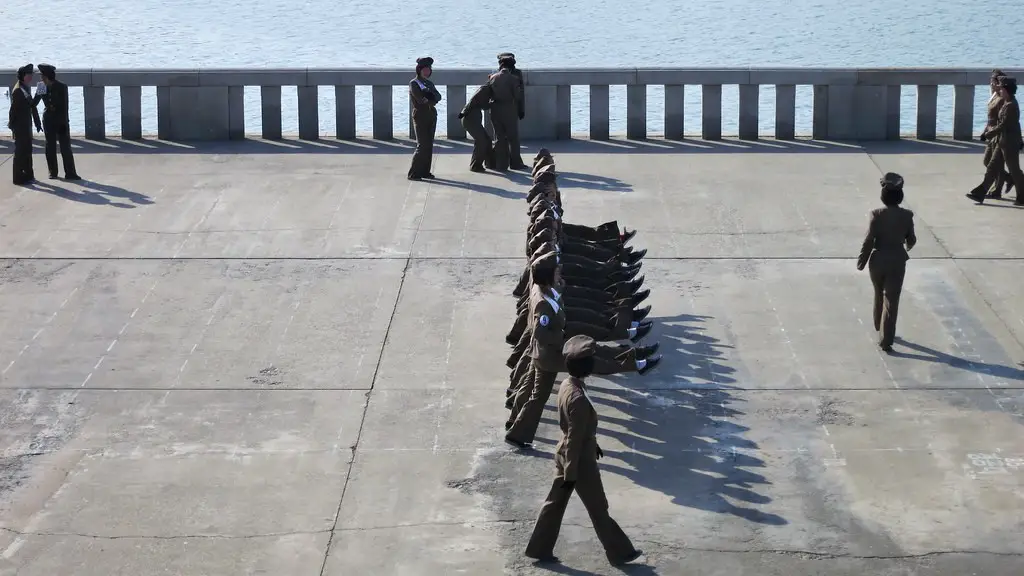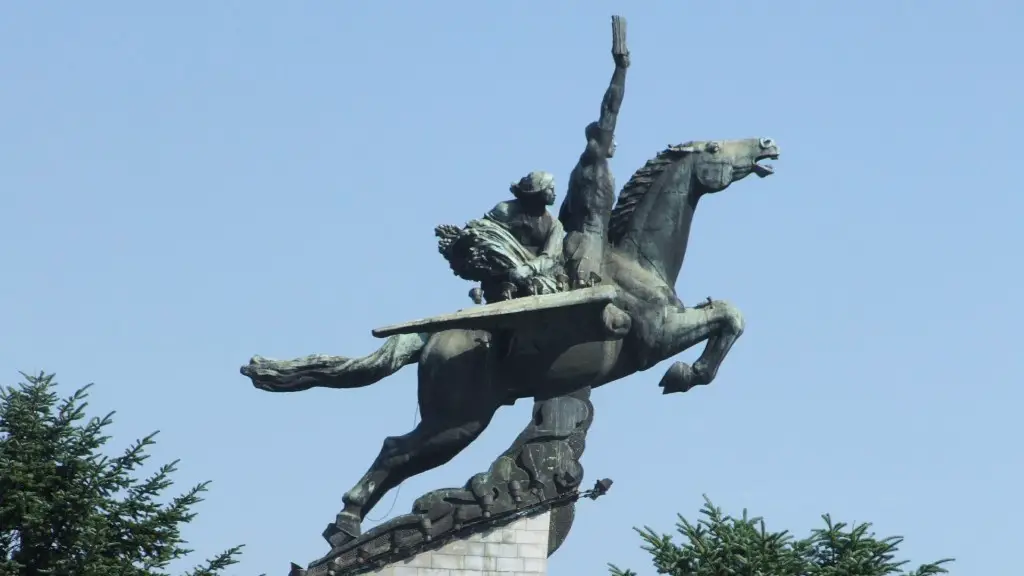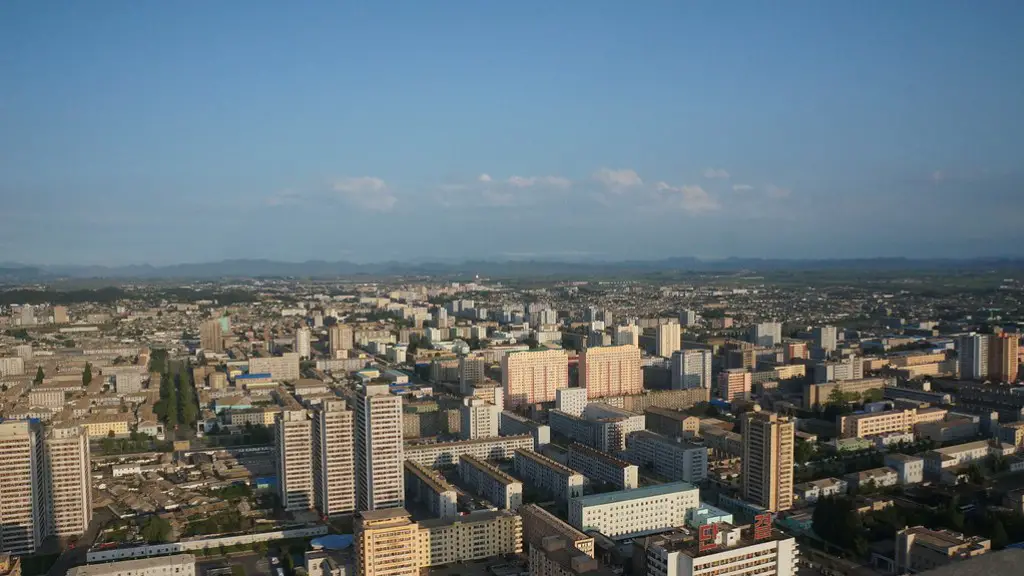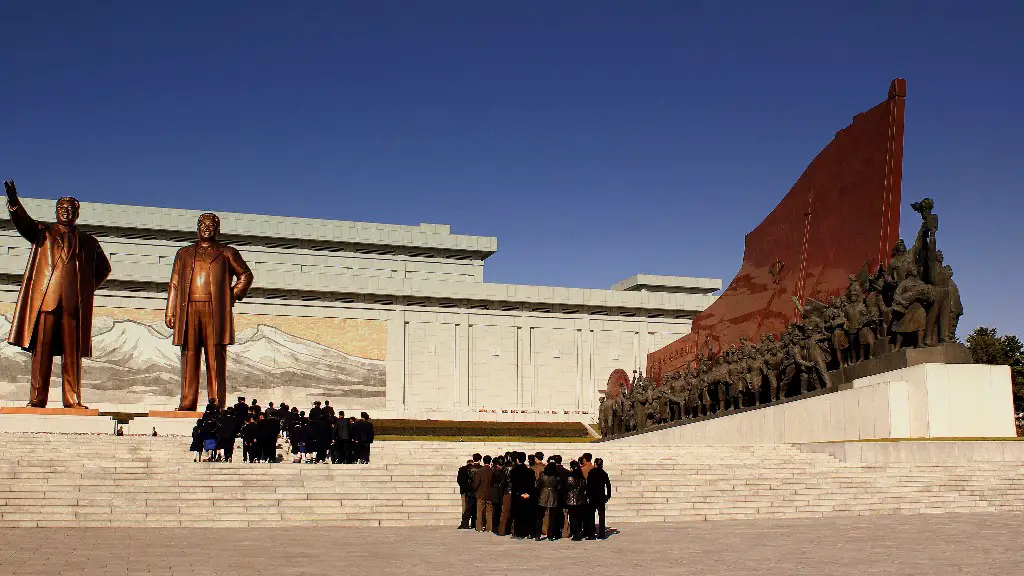Overview
North Korea has been developing nuclear weapons and attempting to build a reliable missile system since the mid-1990s. Despite numerous international efforts to dissuade it, there remains some uncertainty as to whether or not North Korea is able to successfully produce and deploy a reliable nuclear weapons arsenal capable of threatening other nations. The purpose of this article is to assess what evidence is available for us to determine if North Korea has nukes and the implications these capabilities have for the international community.
Conflicting Reports
Since North Korea began its nuclear program, it has made a number of claims about its arsenals and capabilities, often in defiance of various international agreements and laws. Some experts have argued that the country has misled the public in its statements on the subject, but there is no clear way to determine the truthfulness of these claims with certainty. Meanwhile, some observers have argued that North Korea could have a significantly more advanced nuclear weapons program than believed by the international community, and that the country presents a real threat.
Evidence from North Korea’s Tests
North Korea has conducted a number of nuclear tests since 2006, the most recent occurring in September 2017. These tests have provided an opportunity to examine how far the country has progressed in its nuclear development program. The tests have also yielded data on the weapons’ yield and design, allowing experts to make informed judgments. However, experts still disagree on the details and it is unclear whether or not North Korea is able to produce and maintain a reliable nuclear weapons arsenal.
International Sanctions
Sanctions imposed by the United Nations and other international organizations have sought to limit North Korea’s ability to access materials and technology for its nuclear weapons program. To this end, the UN has placed a number of restrictions on trade and investment, as well as travel and communications. Despite these efforts, North Korea has managed to maintain and even expand its nuclear capabilities, demonstrating its ability to circumvent or ignore many of these restrictions.
Detection by Air and Satellite
For many years now, North Korea has been capable of launching ballistic missiles in the direction of other countries, like South Korea and Japan. The use of these missiles has been made possible in part by the country’s ability to build and maintain reliable nuclear weapons. In addition to this, intelligence agencies have also been able to track the country’s activities using air and satellite reconnaissance.
Implications for the Future
The development of nuclear weapons by North Korea raises serious concerns for the international community, particularly the United States and its allies in the region. The uncertainty surrounding North Korea’s nuclear capabilities and the potential risks posed by its missile tests have led to heightened tensions between North Korea and the rest of the world. As such, all nations must remain vigilant and be prepared to respond appropriately to North Korea’s activities in order to ensure peace is maintained.
US Military Presence in the Region
The United States has long maintained a powerful military presence in the region, kept in place to deter North Korea and contain any potential aggression. This presence has been further bolstered in recent years, with the deployment of a number of new military assets, including aircraft carriers, submarines, and anti-ballistic missile systems. This might help to discourage any acts of aggression by North Korea, but it also raises the risk of an escalating conflict between the two countries.
Chinese Relations with North Korea
China has long been viewed as the primary buffer between North Korea and its international adversaries. China is seen as having an influence over North Korea’s actions, due in part to trade relations between the two countries, as well as its shared border. China has cooperated with the United States and other nations in various efforts to prevent North Korea from developing nuclear weapons, but it is uncertain how effective it has been.
Relations with South Korea
In addition to its relationship with the United States, North Korea also has a tense relationship with South Korea. The two countries remain technically at war and there have been numerous armed clashes between the two sides in recent years. South Korea has been increasingly vocal in its opposition to North Korea’s nuclear program and its recent missile tests, and has sought to strengthen its defenses in order to deter any further aggression.
Russian Support for North Korea
Russia has served as an economic and diplomatic partner for North Korea in recent years, though it has been a less significant backer than China. Despite this, Russia has sought to protect its ties to North Korea and provide support when needed, including providing an economic lifeline. In particular, Russia has sought to aid North Korea in its struggle against international sanctions, allowing it to maintain and expand its nuclear capabilities.
Sanctions as a Deterrent
International sanctions placed on North Korea are often seen as the most effective tool in deterring the nation from continuing to pursue its nuclear program. The UN has imposed a number of sanctions on North Korea in an effort to limit its access to materials and technology for its weapons program. It remains uncertain, however, whether or not these sanctions have been successful in deterring North Korea from continuing to develop its nuclear capabilities.
Impact on the Global Community
The development of nuclear weapons by North Korea carries serious implications for the international community and the world at large. The nations of the region, particularly South Korea and Japan, are likely to be most affected by North Korea’s actions, as these countries are the most likely targets of a potential attack. On the other hand, all nations have a vested interest in preventing a conflict between North Korea and the rest of the world.
Conclusion
In conclusion, it is unclear whether or not North Korea possesses a reliable nuclear arsenal capable of threatening other nations. Despite numerous efforts, the international community is still uncertain as to the extent of North Korea’s nuclear capabilities, and the potential risk they present. As such, all nations must remain vigilant and be prepared to respond appropriately to North Korea’s continued provocations in order to maintain peace and stability in the region.



